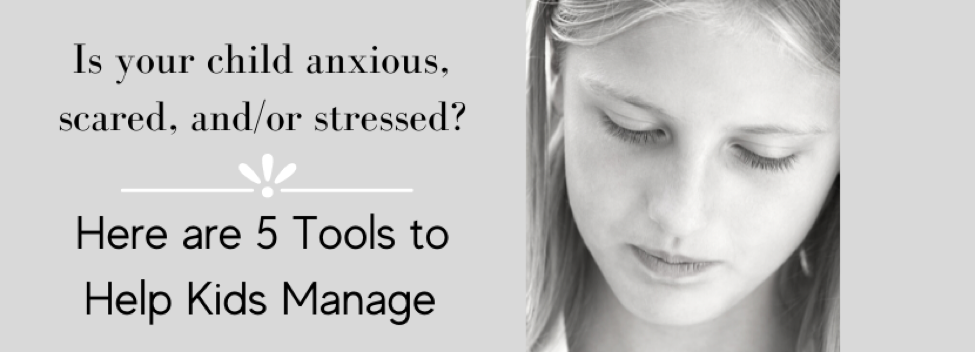
5 Tools for Helping Kids Manage Stress
The start of a new school year;
a disagreement with friends;
social media overload…
so many things can cause a kid stress and in turn, cause parents to worry.
It’s normal for parents to want to protect their child from pain, but stress is a natural part of being human and an experience that will inevitably happen – even in childhood.
Symptoms of stress in kids can range widely and may include:
- anger or behavioral outbursts
- retreating from normal activities and/or conversation
- change in sleep patterns
- change in eating patterns
- headaches
- stomach distress
as well as behaving well at school only to release once at home with meltdowns.
Dr. Graves believes one of the best things we can do for kids is to assure them that the family is there to help them walk through the feelings they are having. Parents may not be able to change the circumstance, but providing tools to manage stress, fear, and anxiety can turn into lifelong coping skills.
Following are 5 tools that can get your family started in managing grade and middle school stress:
- Help Them Identify the Cause.
Kids aren’t necessarily the best at being able to state exactly why they are upset, but they know when things don’t feel right. One of the most valuable tools we can encourage is the ability to identify why they are feeling how they are.
Talking with kids is a first step in acknowledging what is going on, but other options such as:
- writing
- painting
- drawing
- coloring
- walking
- making arts and crafts
can also encourage conversation and provide insight.
- Discover What Comforts Them.
Feeling safe and loved is important for kids to be able to process stress. Talk with them about what helps them feel comforted such as:
- snuggling with a certain blanket or stuffed animal
- cuddling with you on the couch
- talking to or spending time with a grandparent
- relaxing in a certain space in the house like their room or the family den
- a warm cup of milk or tea
- enjoying their favorite meal
and remember these things when their minds seem troubled.
- Include Downtime.
When life becomes so busy that there is little time to decompress and think, stress can add up – even for little ones. Make sure to include downtime in daily schedules for kids to calm down from the day.
Although downtime will look different for each family, some ideas are:
- a family walk after dinner
- reading together
- personal quiet time in their room playing with stuffed animals, etc.
- bubble baths
- watching a movie or favorite show
Make sure not to “plan” every minute of downtime. It is healthy for the brain to become bored resulting in creativity and the ability to entertain itself.
- Express Unconditional Love.
Love can be key in helping kids through difficult times so make sure to share it openly. Let them know that they are loved even if they didn’t do so great on their math test or if they lost their baseball game – making mistakes is part of life.
In addition, being present in the moment communicates that they are important to you. Give them undivided attention daily to show how much they are valued and that you are there to listen to them if they need to talk.
- Schedule a Counseling Session.
Even if your child isn’t showing signs of stress, a yearly or bi-yearly mental health check-up can be a valuable tool for both you and your child. It gives them an opportunity to share in a safe space what they may have troubling discussing at home and professional guidance can provide you comfort as well.
If a child is in need of additional mental health support, there are a variety of options, such as our art therapist, Tonja Graves, who works with kids to express and process their feelings.
Even though they are young, kids can still feel anxiety, fear, and stress. It can be easy to only consider management techniques for us as adults, but there are many things such as the above that can help comfort these growing minds.
If you live in Castle Rock, Castle Pines, Lone Tree, Highlands Ranch, Centennial, Parker, Larkspur, Monument, Colorado Springs or the greater Denver metro area and are looking for mental health support for you and/or your child, our office is here to help. Please call us at (303) 688-6698, click here to schedule a complimentary 15 minute phone consultation with Dr. Graves ,or an appointment with our art therapist, Tonja Graves, or holistic counselor, Rachel Gordon.

Leave a Reply